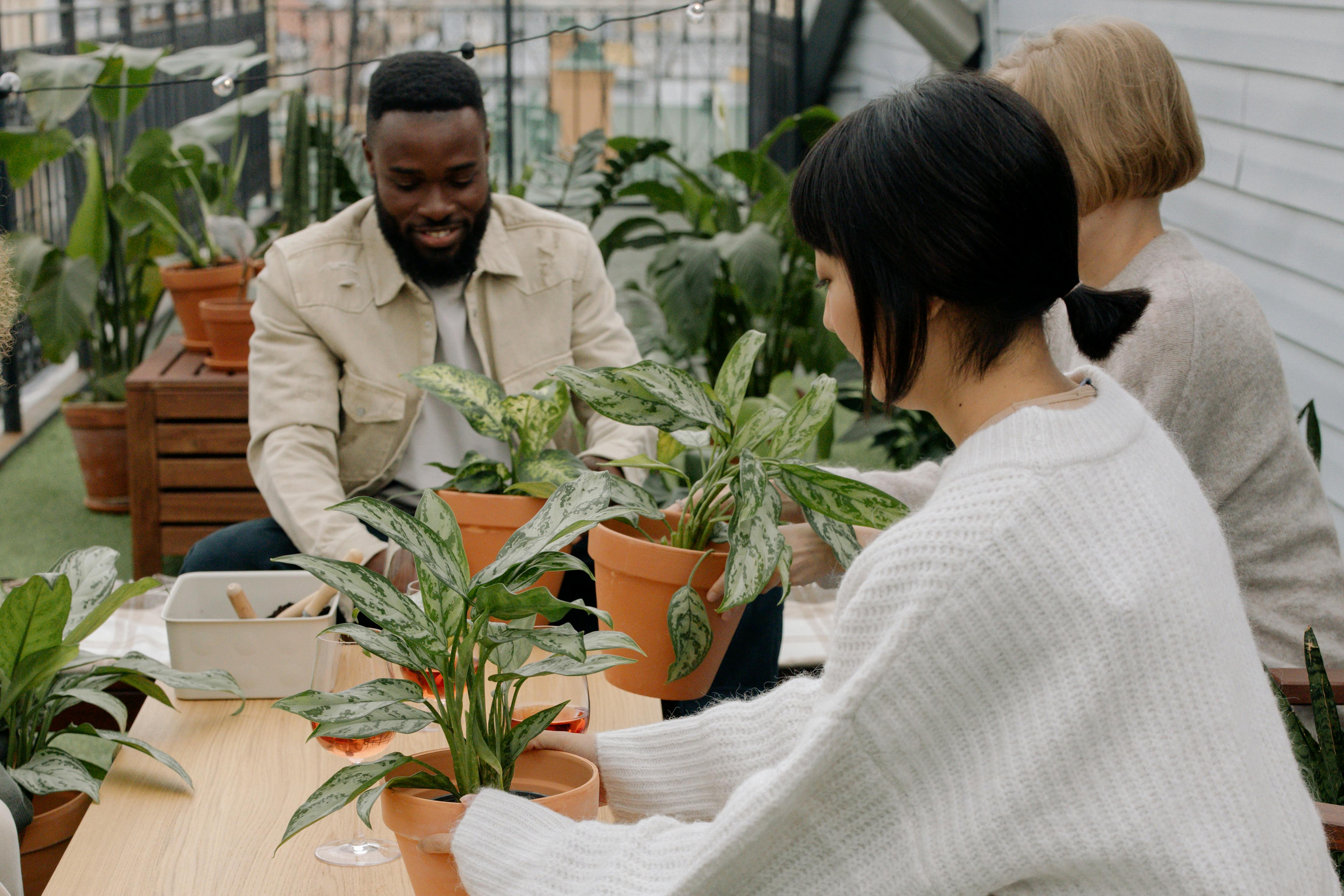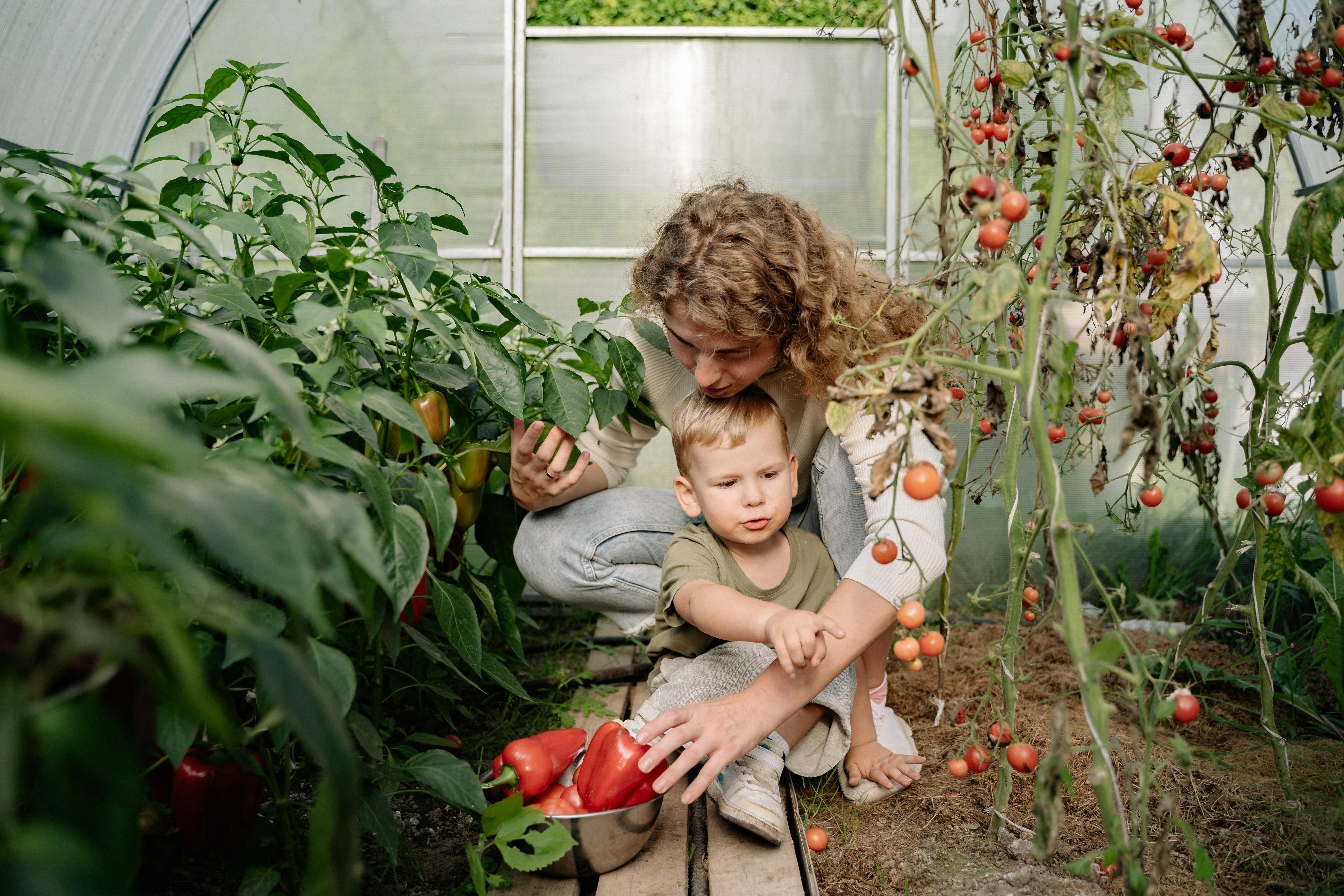
How to Raise Environmental Awareness in Your Locality
Discover simple, effective ways to raise environmental awareness in your community. Take action, inspire others, and help build a cleaner, greener local environment.
In today’s rapidly evolving world, environmental awareness is no longer just a buzzword—it’s a necessity. While global climate conferences and large-scale initiatives set the stage for sustainability, local communities and individuals can spark meaningful change, too. How can one person—or an entire neighbourhood—make a difference? In this blog, we’ll look at a range of tried-and-tested methods to raise environmental consciousness, draw from best practices around the world, and offer practical advice tailored to Australian communities. We’ll also explore how connecting with like-minded people through platforms like Bunchups can amplify your efforts and help you create a lasting, positive impact.
How to raise environmental awareness
Learning how to raise environmental awareness in your locality is simpler than you might think. It begins with the understanding that every community member—children, families, local businesses, and educators—has a role to play. While you don’t have to champion every ecological cause, picking a few focal areas (like recycling, pollution reduction, or renewable energy use) can be an excellent way to start.
Below are core principles and strategies that combine insights from environmental experts and real-life success stories:
1. Start With Education
Host Community Workshops and Seminars
Conducting free or low-cost talks at your local library, community centre, or even via online meetups can pique people’s interest. Invite experts, activists, or local government representatives to speak on pressing issues like waste reduction, pollution, and climate change.
Use Books and Documentaries
Curate a list of books and documentaries for a community watch or reading club. Recommendations like Our Planet or Before the Flood can make complicated topics more relatable, helping attendees grasp both the urgency and the solutions tied to environmental awareness.
Include Local Schools and Childcare Centres
Children are the future stewards of the planet. Collaborate with local teachers to integrate lessons on nature, recycling, and conservation into classroom activities. As seen with programmes like Eco-Schools or Earth Day events, helping kids spend more time outdoors to observe plants, animals, and ecosystems can ingrain a love for the environment early on.
2. Encourage Sustainable Living Habits at Home
Conserve Energy and Water
Switching to LED light bulbs, turning off appliances when not in use, and taking shorter showers may seem small, but the cumulative effect is significant. Post simple reminders around sinks, taps, and light switches that encourage these habits.
Promote Composting and Recycling
Setting up separate bins for organic waste, recyclables, and general rubbish in public spaces—like local parks and community halls—can help everyone reduce what ends up in landfill. Workshops on “How to Compost at Home” are also a great way to show real-life solutions to everyday waste.
Plan Green Challenges
Host friendly competitions in your neighbourhood. For instance, challenge each family to reduce their electricity bill by a certain percentage over a month. Small incentives, such as gift cards to local eco-friendly shops, can raise the fun factor.
3. Use Social Media and Digital Campaigns
Leverage Online Platforms
In our connected world, a single shared post can reach hundreds—if not thousands—of local residents. Create digital flyers, short videos, or infographics that highlight local environmental efforts. You can also partner with influencers or community groups to broaden your reach.
Share Success Stories
People love seeing positive change. Document community clean-ups or recycling drives with before-and-after photos and share them on local forums. Seeing tangible results can motivate more people to get involved.
Coordinate Local Action Groups
If you already see plenty of discussion about the environment on social platforms, invite those users to form an online group dedicated to sustainability. They can organise events, share relevant news articles, or pool resources like gardening equipment.
4. Host Conferences and Attend Local or National Events
A question people often ask is: How can a conference help develop environmental awareness? The answer lies in how conferences bring together experts, activists, government officials, and community leaders. They provide a forum for knowledge-sharing, networking, and hands-on demonstrations of best practices.
Invite Experts to a Mini-Conference
If large conferences are too daunting, consider organising a smaller gathering in your local community hall or even a school auditorium. Topics could include climate adaptation in your region, sustainable farming, or eco-friendly consumer habits.
Attend Established Environmental Conferences
Even if you can only send a few representatives from your community, you’ll bring back fresh ideas and strategies that can then be shared or implemented locally. This ensures knowledge isn’t siloed but actively circulates among residents.
5. Involve Local Businesses
Businesses have a huge role to play in shaping community norms:
Encourage Green Business Practices
Motivate stores, cafés, and restaurants to switch to biodegradable packaging, reduce food waste, or source locally grown produce. Publicly highlight businesses that do, perhaps through a “green rating” or newsletter, to reward their initiative.
Organise Zero-Waste Events
Collaborate with local businesses to host zero-waste markets or fairs where people can buy unpackaged goods, recycle electronics, and learn about sustainable living options.
Promote Collaboration Over Competition
When multiple businesses pool resources—for example, installing communal electric car charging stations—they save on costs while uplifting the entire locality’s eco-profile.
How can a lack of awareness cause environmental problems
The question of how can lack of awareness causes environmental problems is crucial. Without a proper grasp of our ecological footprint, people may unintentionally accelerate pollution, habitat destruction, and overuse of natural resources. Here are some specific examples:
1. Mismanaged Waste
When residents don’t understand why proper disposal or recycling is important, rubbish can end up in rivers or other natural habitats. Polluted waterways harm local wildlife and degrade community aesthetics, perpetuating a cycle of neglect.
2. High Carbon Footprint Lifestyles
Ignorance of how energy consumption, vehicle emissions, and single-use plastics contribute to global warming results in daily habits that exacerbate climate change. Many of these habits—like idling cars or overusing air-conditioning—go unnoticed due to a lack of basic environmental awareness.
3. Loss of Biodiversity
Local flora and fauna are often overlooked if community members don’t recognise their importance. When people don’t see the value in preserving wetlands, forests, or coral reefs, these vital ecosystems can be replaced by unsustainable industries. This loss of biodiversity weakens natural resilience against disasters, from floods to droughts.
4. Minimal Community Engagement
Communities with minimal awareness rarely have collaborative initiatives—like clean-ups, tree-planting days, or discussions with local councils about green policies. Without these initiatives, environmental problems often remain unaddressed and intensify over time.
How to improve environmental awareness
Understanding how to improve environmental awareness requires a blend of education, tangible community projects, and long-term engagement. Whether you’re a parent, student, business owner, or simply a passionate neighbour, here are proven approaches to adopt and sustain:
1. Organise Local Clean-Up Campaigns
Cleaning up parks, beaches, or roadsides is a visible way to highlight pollution. Participants leave with a deeper understanding of how waste accumulates and are likelier to adopt better disposal habits. Collaboration with schools, workplaces, and community centres ensures maximum impact.
2. Champion Sustainable Events in Your Workplace
Employers and employees can play a vital role in promoting environmental awareness:
- Create Green Policies: Setting up formal practices around recycling, energy-saving, and waste reduction.
- Offer Incentives: Encourage workers to cycle or carpool to work by providing subsidies for public transport or extra leave days.
- Eco-Themed Workshops: Offer training sessions on composting, energy management, and recycling best practices. Engage a speaker from a local environmental group or show short documentaries.
3. Cultivate Early Awareness Through Schools and Childcare
Schools are prime incubators for change:
- Curriculum Integration: Incorporate topics on climate change, renewable energy, and conservation into subjects like science, geography, and even literature.
- Hands-On Engagement: Encourage students to do small gardening projects, conduct mini research on local wildlife, or attend field trips to natural reserves.
- Parental Involvement: Invite parents to community tree-planting or recycling events. Environmental habits are more impactful when reinforced at home.
4. Community Art, Music, and Cultural Expression
Art and music have a unique way of resonating with people on an emotional level:
- Mural Projects: Paint eco-themed murals around town, focusing on local wildlife or environmental heroes.
- Eco-Concerts: Host an open-mic event where local musicians perform songs about nature and conservation.
- Themed Competitions: Organise photography or short-film contests that depict environmental challenges and solutions.
5. Collaborative Environmental Challenges
Whether it’s a “No-Plastic Month” challenge or a community pledge to carpool more frequently:
- Set Clear Goals: Outline the time frame, the behaviour to change, and the expected outcome (like reducing single-use plastics by 50%).
- Provide Resources: Offer tips, checklists, and support, such as local product recommendations or a how-to on composting.
- Celebrate Success: Host a small ceremony or publish results in a newsletter. Recognising participants’ efforts keeps momentum high and encourages others to join.
6. Partner With Local Government and Organisations
Your local council or environmental NGOs often have grants, workshops, and campaigns you can tap into:
- Grants for Green Initiatives: Funding can help start recycling programmes, plant more trees in local parks, or sponsor educational visits to wildlife reserves.
- Policy Advocacy: Advocate for stronger local regulations on waste management or industrial pollution. Encourage the community to attend council meetings where these issues are discussed.
- Resource Sharing: Partnerships allow for the pooling of knowledge and assets—like community gardens, tool libraries, or eco-friendly product swaps.
How Bunchups Can Help You Connect and Collaborate
Bunchups is a unique platform designed to bring people together for small, meaningful gatherings based on shared interests—whether it’s exploring board games, sports, yoga, or environmental activism. So how does Bunchups fit into your mission of environmental awareness?
- Meet Like-Minded Neighbours: Finding people who share your passion for sustainability can be challenging. Bunchups solves this by connecting you with others eager to take environmental action—be it a community beach clean-up or a composting workshop.
- Personalised Gatherings: If large events feel overwhelming, Bunchups emphasises small, intimate meetups. This is perfect for group brainstorming sessions, monthly “eco-chats,” or local litter picks where in-depth conversations and genuine connections can happen.
- Combat Isolation, Boost Motivation: Environmental activism can sometimes feel isolating or discouraging when you see constant negative headlines. Building a local circle of supporters through Bunchups provides moral support, accountability, and fresh perspectives on how to improve environmental awareness in your area.
- Free to Use: Hosting or joining gatherings on Bunchups is free, removing barriers that might keep people from collaborating.
Imagine organising a Saturday morning park clean-up, followed by a brunch to discuss the day’s findings—and perhaps an impromptu board game session. By weaving social enjoyment with an environmental cause, participants leave with new friends, a tidier locale, and a fresh determination to keep up the good work.
Taking Workplace Sustainability to the Next Level
Environmental awareness isn’t limited to weekend clean-ups or school gardens. We spend a significant portion of our lives at work, making it a prime setting to champion eco-friendly practices.
1. Workplace Recycling and Composting
Place colour-coded bins near desks, in common rooms, and cafeterias. Some offices go even further with composting food scraps—tackling organic waste head-on.
2. Telecommuting, Car-Free, and Public Transport Incentives
From discounted public transport tickets to flexible remote work schedules, businesses can significantly cut carbon emissions associated with commuting.
3. Eco-Certifications and Compliance
Companies can pursue certifications like ISO 14001 or B Corp to formalise their commitment to environmentally conscious operations. Holding an ISO 14001 certification, for example, mandates regular assessments of a company’s waste management, energy use, and pollution controls. This fosters accountability and continuous improvement.
Environmental Awareness at Schools and Childcare: Planting Seeds Early
Building environmental awareness in children is vital to securing a sustainable future. Many schools excel at teaching values like caring for the planet by offering:
- Gardening Projects: Kids learn directly about plant life cycles, pollinators, and how composting nourishes soil.
- Waste and Recycling Lessons: Simple lessons on sorting rubbish from recyclables can create lifelong habits.
- Hands-On Workshops: Activities like building a bug hotel or measuring classroom energy use teach children the links between their actions and the environment around them.
Craigieburn Childcare, for example, encourages eco-friendly behaviour through immersive programmes. By explaining real-world environmental issues—like pollution, deforestation, and climate change—in age-appropriate ways, children understand early on how their daily choices can make a difference.
For additional insights, guidance, and official policy updates on sustainability, visit the Australian Department of Climate Change, Energy, the Environment and Water. This site offers resources on environmental regulations, conservation initiatives, and grants available to local communities—making it an invaluable tool for anyone eager to further their environmental awareness journey.
Final Thoughts: Everyone Has a Role to Play
Raising environmental awareness is a shared responsibility. Whether you’re organising local clean-ups, championing paperless workplaces, teaching children about natural habitats, or simply switching off extra lights at home, every action matters. Collectively, these small steps add up, sparing natural resources, protecting habitats, and fostering a sense of community spirit that can’t be measured purely in dollars or data.
Embracing platforms like Bunchups can further magnify your impact by connecting you with people who care as much as you do. These connections give rise to small gatherings and meetups that deepen personal commitment and inspire new community-driven initiatives. And as these local circles of environmentally minded individuals expand, so too does the potential for real, lasting change.
The future of our planet depends on all of us—adults, children, local businesses, schools, governments—acting consciously and collaboratively. Keep learning, keep connecting, and keep taking practical steps toward a greener tomorrow. With each effort, we’re not just safeguarding the earth for ourselves but for every generation that follows.















.jpg)













.jpg)










































